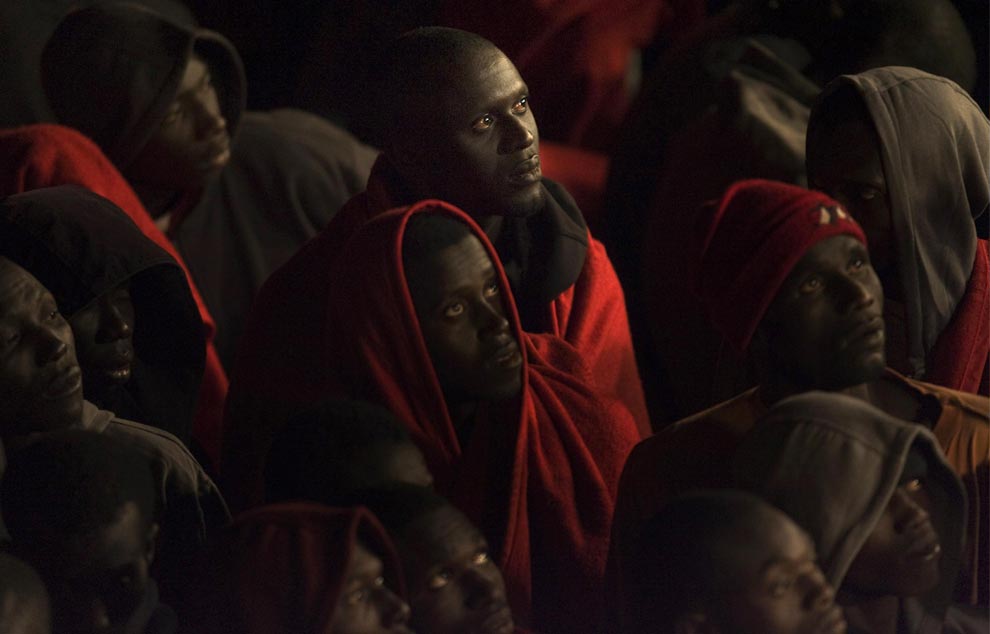Two African migrants have sued the Spanish and French
military for their failure to answer their distress calls while stranded in the
Mediterranean Sea two years ago. The two were among 72 migrants who were
marooned at sea while trying to reach the Italian island of Lampedusa.
Abu Kurke, one of the two complainants, gave an account
of the harrowing ordeal, which claimed the lives of 63 people. “We waited for
help but it wasn’t forthcoming. People started losing their lives after three
days; others fell into the water and couldn’t climb back in,” he narrated.
Kurke, who was fleeing Ethiopia because of political
violence, said that a helicopter that had provided them with water and biscuits
never returned as its crew had promised. Indeed, The Council of Europe, Europe’s human rights
body, conducted an investigation in 2012 that revealed the legal and
institutional failures, which led to the incident.
The indifference of the
European military units was a contravention of international maritime law,
which requires all vessels at sea, including military units, to offer help and
answer distress calls. The units were then engaging in a military operation
against Colonel Muammar Gaddafi’s regime in Libya.
The new complaint comes hot on the heels of the first
one, which was thrown out by the prosecutor’s office in Paris after the French
military denied responsibility. Enjoined in the second complaint are four civil
rights groups including the International Federation for Human Rights (FIDH). It
seeks a judicial inquiry into the incident by an investigating judge.
According to the Guardian newspaper, which
first exposed the story in 2011, 61 people, including two newborns, died on board
the tiny dinghy while two others passed away after the boat ended up in Zlitan,
Misrata in Libya. It was carrying 47 Ethiopians, seven Eritreans, seven
Nigerians, five Sudanese and six Ghanaians.
Stories of African migrants crossing the Mediterranean to
reach Europe are not uncommon. The office of the United Nations High Commissioner
for Refugees (UNHCR) reports that 58,000 migrants used the route to reach
Europe in 2011. The commission cited the Arab uprising as the main reason for
the upsurge in migrants, which was the highest figure since 2008. 1, 500 people
were not lucky and lost their lives within the same period.
The dangerous journey to Europe usually involves an
energy-sapping trek across the Sahara desert where many migrants die from
thirst. Crossing the Mediterranean brings with it the risk of drowning as was
witnessed in the case of Abu Kurke and his companions. The risk is even greater
when the boats are unworthy and are manned by the migrants themselves who may
not be experienced in steering the vessels to safety.
Unaccompanied minors and pregnant women are often the most
affected by the inhumane conditions, which characterise the journey across the
Mediterranean into Europe. The boats are
often too small to accommodate the large number of passengers while basic
necessities, such as, food and water are usually inadequate. Rape and beatings
are also common occurrences during these harrowing trips.
As if that is not enough tribulation, there is the risk
of being shot down by border guards. Simon Cheung, a Libyan-based UNHCR Senior
Protection Officer reveals that cases of migrants reaching their destinations with
gunshot wounds are common.
Organised criminal groups have been the main
beneficiaries of African migrants’ desire to reach their destinations. Taking advantage
of the latter’s problems, these groups charge a fee to ferry migrants across
the sea into Europe. For example, a trip from West Africa through the Libyan
coast en route to Europe costs between $2,000 and $3,000.
Some migrants end up as slaves of the criminals upon
reaching their destination where they engage in various dangerous activities to
pay off the debts owed to the groups. The fear of deportation to their homeland
forces these migrants to toe the line of the criminal groups.






















